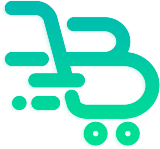High blood pressure, generally called high blood pressure, is an extensive medical condition that affects countless people worldwide. Often referred to as the “quiet killer,” high blood pressure can bring about extreme health problems if left neglected. Recognizing the signs and symptoms and identifying the warning signs can aid individuals determine the condition early on and seek proper healthcare. In this article, we will check out the major symptoms of high blood pressure and provide beneficial understandings for better hypertension monitoring.
What is High blood pressure?
High blood pressure occurs when the pressure of blood versus the wall surfaces of the arteries is regularly too high. This condition puts additional stress on the heart and capillary, boosting the danger of cardiovascular disease, stroke, and various other cardiovascular complications. Hypertension is categorized right into two kinds: key (essential) and additional hypertension.
Primary high blood pressure accounts for around 90-95% of situations and develops slowly over time as a result of a mix of genetic onycosolve plus and environmental factors. Second hypertension, on the various other hand, is brought on by a hidden clinical problem, such as kidney disease or hormone disorders.
While high blood pressure can go undetected for many years, it is necessary to recognize the typical signs and signs that might suggest elevated blood pressure degrees.
Common Signs And Symptoms of Hypertension
1. Frustrations: Frequent and consistent migraines, specifically in the morning, can be a sign of high blood pressure. These migraines are normally called a pulsating experience, frequently accompanied by dizziness and obscured vision.
2. Fatigue: Feeling exceedingly worn out or experiencing a lack of power regardless of obtaining adequate rest may be a measure of hypertension. High blood pressure can impact the body’s capability to supply oxygen and nutrients to the muscle mass and body organs, leading to exhaustion.
3. Shortness of Breath: Problem breathing or shortness of breath, also during light physical exertion, can be a signs and symptom of hypertension. Elevated blood pressure levels can trigger the heart to function harder, resulting in breathing concerns.
Additional Symptoms
While the previously mentioned signs and symptoms prevail indications of high blood pressure, individuals may additionally experience the following:
- Chest pain
- Irritability
- Nosebleeds
- Uneven heartbeat
- Vision issues
- Frequent peeing
- Anxiousness or nervousness
It is necessary to keep in mind that these symptoms may differ amongst individuals, and some individuals with high blood pressure may not experience any noticeable signs. Regular high blood pressure surveillance is crucial for prompt discovery and management of the problem, specifically for those at higher threat.
When to Seek Clinical Assistance
If you experience any one of the signs and symptoms pointed out above or believe you may have hypertension, it is essential to speak with a healthcare professional for an exact medical diagnosis. Additionally, people with the following threat variables need to be specifically cautious in checking their high blood pressure levels:
- Age (above 60)
- Household background of hypertension
- Obesity or excess weight
- Inactive lifestyle
- Smoking or extreme alcohol usage
- High salt intake
- Diabetes
- High cholesterol levels
By routinely checking high blood pressure levels and looking for suitable clinical attention, individuals can successfully take care of hypertension and decrease the danger of associated problems.
To conclude
Acknowledging the signs and symptoms of hypertension is crucial for very early intervention and reliable monitoring. While high blood pressure usually exhibits no obvious signs, being watchful concerning prospective warning signs can be life-saving. Migraines, tiredness, shortness of breath, and added symptoms like breast pain and vision issues should not be neglected. If you crystalix eye drop believe you may have high blood pressure or come under high-risk classifications, get in touch with a healthcare expert for correct diagnosis and assistance. Bear in mind, early detection and proactive administration play an important role in preserving heart health and total wellness.
